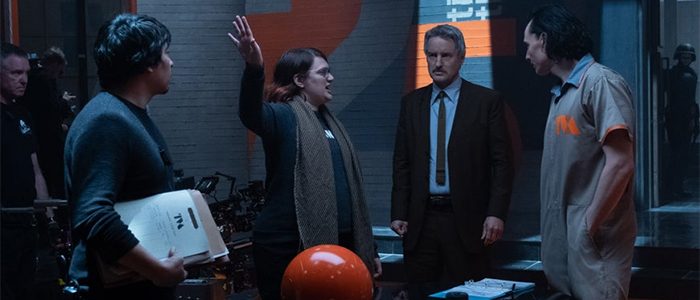
Since the new Marvel Studios TV shows being produced for Disney+ are so closely tied to the events of the Marvel Cinematic Universe, it only makes sense that the shows are being crafted as if they were feature films. At least that’s how they’re being treated behind the scenes with a process that removes one key element of television production.
Whenever a TV show is made, there’s typically a role called a showrunner. This position acts much in the same way that a director and producer would on a feature film set, heading up creative and managerial responsibility. Showrunners are also credited as an executive producer of the series. In the case of Marvel Studios TV shows like WandaVision, The Falcon and The Winter Soldier, and Loki, there hasn’t been a showrunner, which means the creative process is treated more like a movie.

How Loki Was Produced Without a Showrunner
Loki head writer Michael Waldron recently opened up to Collider about the nitty-gritty of working on a TV show that doesn’t have a defined showrunner. First, he defined exactly what his role was as the head writer of Loki:
“I’m the head writer of the show, I’m not the showrunner. So what does that mean? That means that I was the creator of the show. I think would be my credit. And I ran the writer’s room. I was the final say on the scripts and everything as we headed into production.”
So who is making the rest of the creative decisions? Much like a film set, that fell on Loki director Kate Herron (seen above). Waldron explained:
“As we went into to production, it does shift into a more feature-centric model, in that Kate’s at the top of the totem pole. In traditional television, jobs that a showrunner [or] a writer might be making, Kate’s making. The director’s making [those choices] about production design and stuff. She’s making those ultimate calls. She’s more of the quarterback through post and everything. Not to say I’m cut out of the process at all. It’s like, you can kind of make a choice as to how much that bothers you as a writer.”
Not even Kevin Feige could be considered the showrunner, even if he’s the shepherd of the entire Marvel Cinematic Universe. Though Waldron and Herron are both serving Marvel and Feige is the head honcho over there, Waldron said, “It’s not like Kevin is saying, ‘It has to be this, it has to be that.’ It’s everybody arriving at something together.”

Will All Marvel Studios Shows Be Made This Way?
Even though this is how Marvel chose to make these first three shows for Disney+, that won’t always be how they’ll operate. Upcoming shows like Ms. Marvel, Hawkeye, Moon Knight, and She-Hulk have each had multiple directors hired for several episodes throughout their first seasons.
Ms. Marvel has Adil El Arbi & Bilall Fallah tackling two episodes, Meera Menon directing a single episode, and Sharmeen Obaid-Chinoy tackling three episodes. Hawkeye has executive producer Rhys Thomas directing a block of episodes and duo Bert & Bertie (aka Amber Finlayson and Katie Ellwood) taking on another block. Moon Knight has Mohammed Diab tackling several episodes with Justin Benson and Aaron Moorhead taking on the other chunk. Finally, She-Hulk has Kat Coiro directing a handful of episodes (including the first and final), and Anu Valia is directing a few episodes too.
That’s much different from how the first three Marvel shows were produced. Does that mean the next wave of shows will have a different feel? Only time will tell.
Cool Posts From Around the Web:

